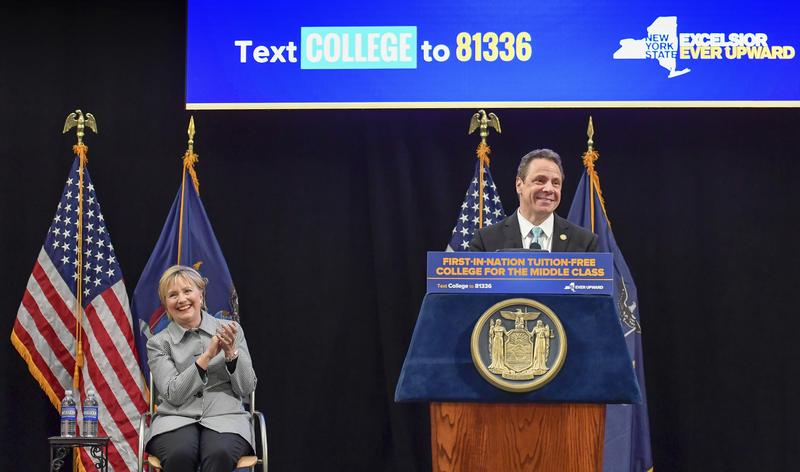
New York Gov. Andrew Cuomo proudly touted the free tuition program for some middle-income students passed in the state budget last week, staging a celebratory rally with former Democratic presidential candidate Hillary Clinton in Queens.
But just a few days later, as people took a closer look at the fine print of the Excelsior Scholarship program, the criticism started to roll in.
One provision requires students who accept the tuition to live in New York for four years after graduation — or pay the money back.
This residency rule prompted New York Times columnist David Brooks to call the plan the “worst public policy idea of the year," because he argued it could reduce a graduate’s lifetime earnings if they are prevented for several years from taking a more lucrative job in another state.
A New York Times editorial also critiqued the plan.
An editorial by the Albany Times Union called the requirement “indentured citizenship” and said the residency requirement should be scrapped in favor of doing more to build up better paying jobs in upstate New York and more affordable housing downstate so that college graduates would have more incentives to remain in the state.
According to a SUNY spokeswoman, 83 percent of public college graduates remain in the state after they receive their degree, so the potential number of students affected by the residency requirement would be small.
But Cuomo dismissed the criticism when asked about it at the annual Easter Egg Hunt on Saturday; he took a swipe at The New York Times instead.
